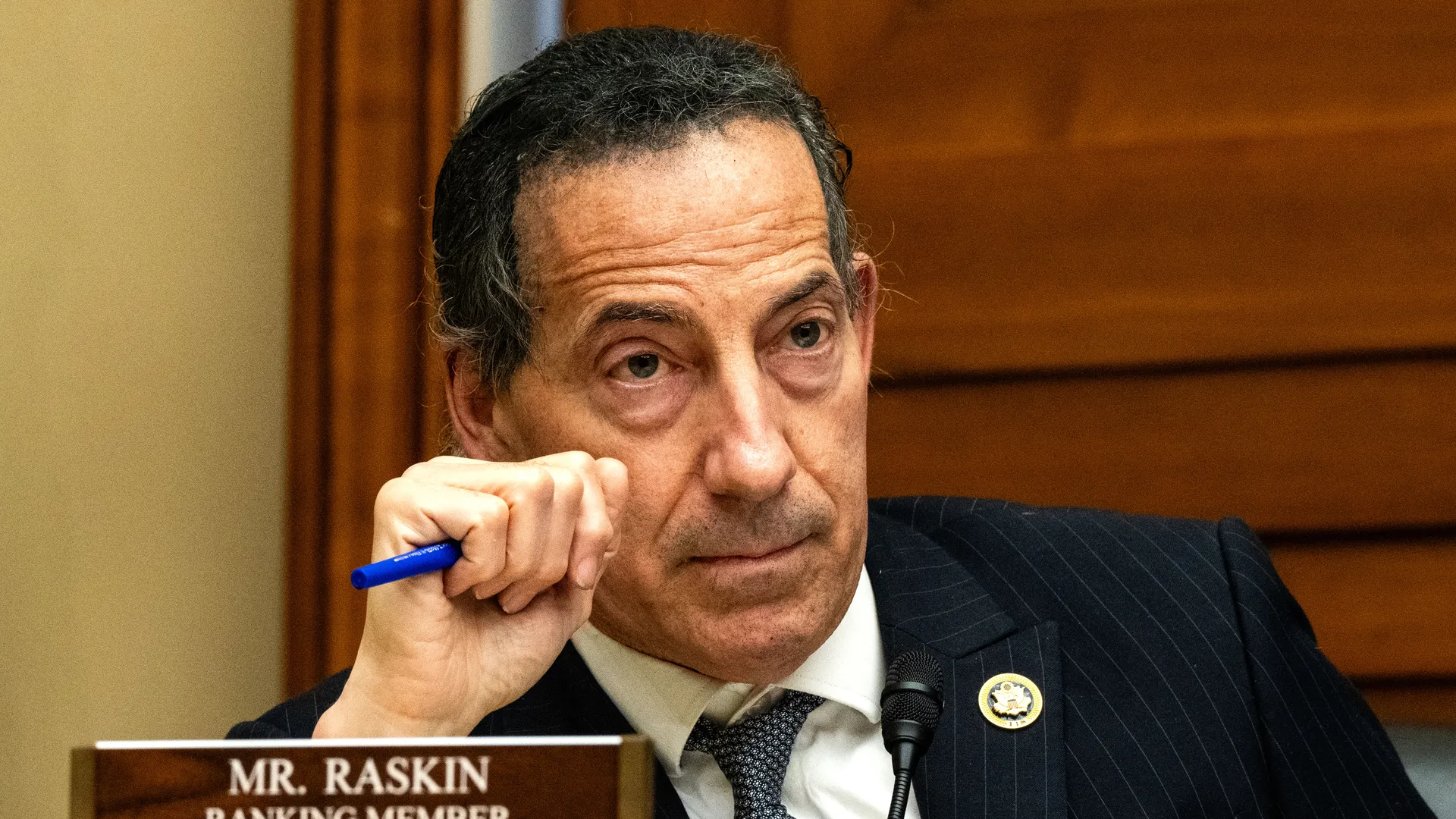November 5, 2024
As the 2024 election approaches, the debate around Donald Trump’s eligibility for office has intensified, with renewed attention on the 14th Amendment’s insurrection clause. Among those leading this conversation is Rep. Jamie Raskin (D-Md.), a constitutional scholar and vocal Trump critic. Raskin has argued that Trump’s actions on January 6, 2021, constitute “engagement in insurrection,” a charge that, if validated, could bar Trump from returning to office.
Raskin, who played a key role in Trump’s second impeachment trial, believes that Trump’s encouragement of the Capitol riot places him in violation of the 14th Amendment’s prohibition against insurrectionists holding federal office. Originally ratified after the Civil War, this amendment was designed to prevent those who had supported the Confederacy from returning to power. Today, Raskin and some Democratic colleagues argue that Trump’s actions fall under this clause, igniting a significant debate about its application in modern politics.
In early 2023, Raskin raised alarms about the consequences if the Supreme Court declined to rule on Trump’s eligibility under the 14th Amendment. He warned that without judicial clarity, Congress could face a constitutional crisis on January 6, 2025, when it convenes to count the electoral votes. “They want to kick it to Congress, so it’s going to be up to us … to tell the rampaging Trump mobs that he’s disqualified,” Raskin stated in February, envisioning a tense showdown that could threaten national stability if Trump’s eligibility were questioned by Congress without clear legal backing (Politico).
Despite Raskin’s concerns, Democratic leaders have recently signaled a reluctance to pursue the 14th Amendment route to block Trump’s path to office. Raskin himself admitted recently that there is no current plan among House Democrats to invoke the insurrection clause during the January 6, 2025 joint session to challenge Trump’s electoral votes, should he win the election. “No one is talking about that,” he said in a recent interview (Politico). This reflects a broader trend among Democratic leaders who, despite labeling Trump an “insurrectionist,” are prioritizing a peaceful and drama-free transition of power if he wins the election.
Democratic Minority Whip Katherine Clark emphasized the party’s commitment to upholding the electoral process, regardless of the outcome. Clark stated that Democrats would ensure “every vote counts” to protect the integrity of the democratic process (Politico). Similarly, Democratic Leader Hakeem Jeffries affirmed that the party would certify the election winner, including Trump if he wins, to avoid the uncertainty and division seen in previous elections. This stance signals that the Democratic Party is willing to respect the results, even if it means setting aside deeply held beliefs about Trump’s conduct and eligibility (The Hill).
Still, legal experts are divided on how Congress should interpret the 14th Amendment. Some argue that Congress has a duty to prevent candidates deemed ineligible from taking office, citing the Supreme Court’s March opinion, which hinted that only Congress — not individual states — holds authority over the enforcement of the insurrection clause at the federal level (Reuters). However, this opinion provided no guidelines on how Congress should apply the clause, leaving a gray area in the legal landscape. Constitutional scholar Gerard Magliocca from Indiana University describes this ambiguity as a “serious problem,” suggesting that Trump could assume office without any formal determination on his eligibility (Indiana Public Media).
Other experts believe that January 6 is not the proper venue for deciding Trump’s eligibility. Derek Muller, a constitutional law professor at the University of Notre Dame, contends that the joint session is not designed to serve as a tribunal to assess a candidate’s eligibility. According to Muller, Congress’s role on that date is simply to count the electoral votes, not to interpret eligibility based on subjective criteria (Notre Dame Law School).
Edward Foley of Ohio State University concurs, noting that without clear congressional guidelines, invoking the 14th Amendment on January 6 would lead to an endless cycle of legal battles. He argues that any attempt by Congress to unilaterally disqualify Trump would likely prompt immediate judicial intervention (Ohio State University).
In the absence of definitive legal processes, Democrats appear willing to forego the 14th Amendment option, signaling a focus on maintaining a stable transition of power over pursuing a high-stakes legal conflict. Their approach reflects an effort to project confidence in the democratic process, even as some lawmakers remain deeply concerned about Trump’s past actions.
Raskin’s fiery rhetoric has softened in recent months, acknowledging the procedural challenges and potential instability that could arise from a last-minute disqualification attempt. By stepping back from the 14th Amendment debate, Democrats aim to avoid the divisiveness that defined the post-2020 election period and demonstrate a commitment to preserving institutional integrity.
Sources:

